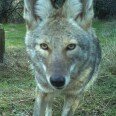
Next Up:
0:00
0:00
-
Listen Listen
Climate & Environment
Expect the warmest and windiest day of the week.
Sponsored message
More Stories
-
Even in a sort-of dark location you’ll see some spectacular sights.
-
We're looking at dry weather and cooler nights for the week.
-
The city approved a plan to transition to carbon-free energy, but some say it doesn’t go far enough.
-
We're looking at dry weather and cooler nights for the week.
-
The Salton Sea contains a third of the world's lithium, but the exposed bed lake also contains heavy metals and pesticides which could threaten nearby residents.
-
Rich countries are dodging responsibility for adaptation aid, infuriating leaders from vulnerable nations.
-
We're looking at dry weather and cooler nights for the week.
-
Steep slopes, weak rocks and water intrusion all make slides more likely.
-
Worm composting became especially popular during the pandemic, but it's never too late to get in the dirt.
-
Drilling in Culver City’s portion is set to end in 2029.
-
California’s sequoia population has taken a hit in the past few years. The National Park Service wants to help it rebound — but environmentalists are concerned the program could hurt more than it helps.
-
The National Weather Service has issued fire weather watch for portions of the Southland.
Landfills are the second-largest source of methane emissions in California. That’s why the California Air Resources Board took action to monitor and capture landfill gases.
Support your source for local news!
In case you missed it
-
911 recordings obtained by LAist shed light on why and how emergency planning continues to leave people with disabilities behind.
-
LAist investigates illicit dumping at three Antelope Valley sites.
-
An LAist investigation found toxic heavy metals in samples of fire retardant collected from the Palisades, Eaton and Franklin fires. Here's what that means.
More Stories
-
Unlike a year ago, water storage is above average. Whether the year is wet or dry, though, remains uncertain despite El Niño conditions.
-
The ocean is trying to contaminate our aquifers.
-
Less parking could pave the way for denser housing and more accessible public transportation.
-
More than 1,200 birds fell ill at Tulare Lake due to a toxic bacteria growing in the water that causes avian botulism.
-
The USDA is updating an important map for gardeners and growers picking plants and flowers. The new map shows the contiguous U.S. is about 2.5 degrees Fahrenheit warmer than the last map 11 years ago.
-
“Residents in our underserved communities may discover that an EV is no longer beyond their family's financial reach.”
-
It's going to be slightly warmer during the day, but rain is expected to come back later tonight.
-
The rain this week has helped dampen smoke from the hangar fire on the former Marine Corps base.
-
State cuts rooftop solar subsidies for apartments and schools.
-
Rain is expected today and some areas have a chance of thunderstorms in the afternoon.




































